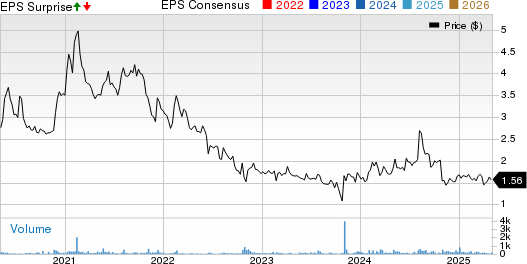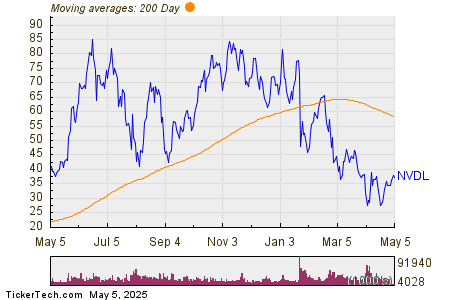Amazon Reports Strong Q1 Earnings Amid Market Challenges
As Amazon (NASDAQ: AMZN) entered its first-quarter earnings report, investors hoped to see resilience in its retail business despite economic pressures and tariff threats. They also looked for solid growth from Amazon’s cloud business.
Amazon surpassed expectations this quarter, achieving a revenue increase of 9%, totaling $155.7 billion, compared to the consensus estimate of $155.1 billion. Operating income rose by 20.2%, reaching $18.4 billion, while earnings per share surged from $0.98 to $1.59, exceeding forecasts of $1.37. The company attributed part of this success to gains on investments.
Looking toward the second quarter, Amazon projects revenue between $159 billion and $164 billion, representing growth of 7% to 11%, which aligns with analyst expectations.
Despite these results, Amazon’s stock dipped in after-hours trading due to ongoing tariff threats and a slowing economy. On the earnings call, CEO Andy Jassy emphasized the company’s readiness to tackle challenges posed by the trade war. Notably, he highlighted that a large portion of sales derives from low-cost essentials, such as groceries, which, combined with its diverse product offerings and 2 million sellers, provides Amazon with a competitive edge.
Turning to the cloud sector, Jassy noted that 85% of global IT spending remains on-premises, indicating significant room for growth in the cloud market. He anticipates this share will shift over the next 10 to 20 years.
Amazon Web Services (AWS) experienced robust growth, with revenue increasing by 17% to $29.3 billion. Operating income in the AWS segment grew from $9.4 billion to $11.5 billion.
AWS Faces Strong Competition
Amazon’s AWS is in tight competition with Microsoft (NASDAQ: MSFT) and Alphabet (NASDAQ: GOOG; NASDAQ: GOOGL), collectively known as the “Big 3” in cloud infrastructure.
While AWS leads in terms of revenue, Microsoft’s Azure showed an impressive growth rate of 33% in Q1, while Alphabet’s cloud sector achieved 28% growth, reaching $12.3 billion. Microsoft does not disclose Azure’s revenues specifically, but estimates suggest it constitutes the bulk of the company’s intelligent cloud segment, which reported $26.8 billion in total revenue.
This quarter marks an ongoing trend where Microsoft and Alphabet have outpaced Amazon in cloud computing growth. Microsoft’s extensive suite of enterprise software facilitates seamless integration with Azure, while Alphabet excels in data analytics—factors that contribute to their growing market shares.
In terms of overall revenue growth, both Microsoft and Alphabet have maintained stronger performance compared to Amazon. In Q1, Microsoft’s revenue growth stood at 13%, against Amazon’s 9%.
Amazon’s Challenges in the AI Sector
Amazon is trailing behind both Microsoft and Alphabet when it comes to artificial intelligence (AI) initiatives. The company appeared unprepared for the rapid rise of ChatGPT.
Microsoft has collaborated with OpenAI since 2019, whereas Alphabet was already developing its AI models prior to that. Although Amazon has made significant investments in Anthropic, an AI start-up, it has yet to release the diverse range of AI products that its rivals offer.
Despite its substantial competitive advantages, Amazon’s e-commerce segment is maturing, and its cloud computing division is losing ground to stronger competitors.
Deciding to sell Amazon stock may appear premature given its solid growth and favorable valuation. However, in a comparative analysis, Microsoft and Alphabet present robust alternatives alongside Amazon, with Alphabet’s stock also proving to be notably more affordable.
Outlook on Investment Opportunities
Investors seeking fresh opportunities may consider diversifying into Microsoft or Alphabet, both recognized as members of the “Magnificent Seven.”
The views and opinions expressed herein are those of the author and do not necessarily reflect those of Nasdaq, Inc.



